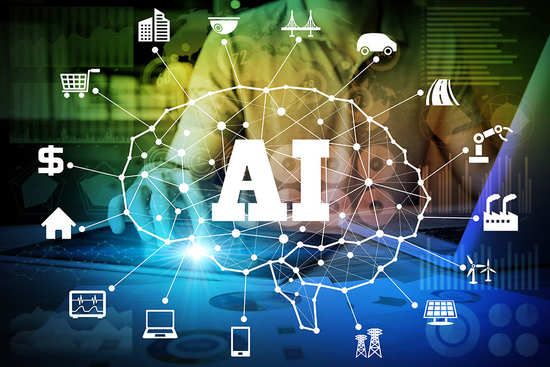As companies explore new ways to gain an edge, AI is emerging as a cornerstone for growth. AI-powered tools and insights allow organizations to streamline operations, enhance customer experiences, and stay agile in a competitive landscape. By embedding AI into core strategies, leaders can open up avenues for innovation and operational excellence that foster lasting growth.
AI isn’t just another technology to adopt; it’s a transformative shift in how businesses approach problem-solving, planning, and decision-making. The ability to harness vast amounts of data and draw actionable insights from it means companies can move faster, serve customers better, and make smarter choices at every level. Leaders looking to drive sustainable growth need a solid understanding of how AI can be applied across various facets of their business, from automating processes to improving decision accuracy.
As we explore the unique ways AI drives growth, innovation, and efficiency, this guide offers leaders actionable insights on how to integrate AI into their strategies effectively. With a focus on real-world applications and practical examples, let’s delve into how AI can become a key player in your organization’s journey to success.
Boosting Efficiency with Intelligent Automation One of the most impactful ways AI fuels business growth is through intelligent automation. Routine tasks that once consumed valuable time and resources can now
be streamlined with AI-powered tools like robotic process automation (RPA) and machine learning models. From data entry to scheduling and beyond, these tools free up employees to focus on strategic initiatives, enhancing productivity across departments. The result? Businesses operate more smoothly, reduce costs, and create more bandwidth for high-impact projects.
Beyond simple automation, AI enables organizations to optimize workflows with predictive insights. Machine learning models can analyze patterns in business operations and recommend adjustments to minimize downtime and improve productivity. For example, an AI-driven supply chain system can forecast demand spikes, allowing for just-in-time inventory management that reduces waste and enhances customer satisfaction. These insights empower leaders to make proactive changes that improve the entire business’s efficiency, making AI a key ally in achieving long-term growth.
Moreover, intelligent automation allows companies to adapt swiftly to fluctuations in demand, scaling resources as needed without overextending. This flexibility is particularly valuable for growing businesses, which must be agile to remain competitive. By implementing intelligent automation, organizations not only boost efficiency but also create a scalable model that can support growth without sacrificing quality or service levels. Driving Customer-Centric Innovation AI’s potential to enhance customer experiences is one of its most exciting applications. By understanding customer preferences and behaviors, AI helps companies create highly personalized interactions that resonate with consumers on a deeper level. Tools like natural language processing (NLP) and sentiment analysis allow businesses to interpret customer feedback, respond to inquiries in real-time, and tailor their offerings to meet individual needs. This customer-centric approach builds loyalty and positions businesses as responsive, attentive, and innovative.
AI-driven insights empower companies to innovate based on real-time customer data rather than relying on outdated feedback loops. For instance, predictive analytics can identify trends in customer preferences, guiding product development and marketing strategies that stay ahead of the curve. With AI, leaders can adapt their products and services quickly, meeting customer expectations and creating experiences that set their business apart. This proactive innovation not only satisfies existing customers but also attracts new ones who value personalized, relevant interactions. Moreover, AI enables companies to engage customers through multiple touchpoints, creating a seamless experience across channels. Whether customers interact through a website, social media, or an in-store kiosk, AI integrates these interactions, building a comprehensive profile that enhances the customer journey. This holistic approach drives meaningful engagement, allowing businesses to anticipate customer needs, foster loyalty, and ultimately fuel growth through lasting relationships. By embracing AI in customer experience, companies position themselves as leaders in innovation, giving them a strong competitive advantage.
Empowering Data-Driven Decision Making
AI empowers leaders to make decisions based on data rather than intuition, which is a game-changer in today’s fast-paced business environment. With AI’s advanced data analytics, companies can analyze massive amounts of information in real-time, uncovering insights that would otherwise be impossible to detect. This means decisions are not only faster but more accurate, allowing businesses to respond proactively to emerging trends, changing customer preferences, and shifts in the market landscape.
AI tools provide predictive analytics that enables companies to forecast demand, anticipate supply chain issues, and manage risks before they escalate. For instance, a retail business can use AI to track sales patterns and adjust inventory in anticipation of peak seasons, ensuring shelves are stocked precisely when needed. This level of foresight minimizes waste, reduces costs, and allows companies to make the most of every opportunity, resulting in smarter resource allocation and improved profitability.
Moreover, AI-driven decision-making isn’t limited to high-level strategy; it extends across all functions, empowering teams at every level. With easy-to-use dashboards and real-time data insights, departments from marketing to HR can make informed choices aligned with business objectives. The democratization of data helps break down silos, promoting a culture of transparency and responsiveness. Leaders who embrace AI-driven decision-making enable their teams to operate with a new level of clarity and confidence, translating into better outcomes and sustained growth.
Accelerating Product Development and Market Adaptation
AI accelerates product development by enabling businesses to experiment, iterate, and bring new ideas to market faster than ever before. Machine learning models can simulate product performance, allowing companies to test various designs and functionalities in virtual environments before committing to physical prototypes. This speeds up the development process, reduces costs, and allows companies to validate ideas early, ensuring resources are directed toward products with high market potential.
By analyzing customer feedback and tracking industry trends, AI can also guide companies in adapting their offerings to meet evolving market demands. For instance, AI-powered sentiment analysis can reveal how customers feel about certain features, products, or even competitors, offering invaluable insights into what drives consumer preferences. With these insights, companies can quickly pivot, updating products or launching new features that align with customer expectations. This adaptability not only improves customer satisfaction but also positions companies as responsive and innovative players in the market. Additionally, AI fosters cross-functional collaboration, streamlining communication between product development, marketing, and sales teams. By centralizing insights and automating routine tasks, AI allows teams to focus on refining ideas, perfecting prototypes, and bringing new offerings to market with agility. The result is a faster, more efficient product development cycle that enables businesses to meet demands as they arise, staying relevant and competitive. Leveraging AI in product development ensures that companies don’t just follow trends—they set them.
Final Thoughts
Harnessing AI for business growth isn’t just about implementing technology; it’s about embedding a forward-thinking approach into the organization’s DNA. AI enables companies to enhance operational efficiency, drive customer-centered innovation, and make decisions rooted in data. Leaders who leverage AI effectively aren’t just adapting to change; they’re using AI to shape it, positioning their companies as proactive, adaptable, and poised for long-term success.
For companies ready to commit to AI-driven growth, the benefits are profound. AI empowers teams to work smarter, leaders to make better decisions, and companies to innovate faster, creating a ripple effect that impacts every aspect of the business.
As AI continues to evolve, those who embrace it as a strategic tool will lead the way, establishing themselves as market leaders rather than followers.
In an AI-driven world, staying competitive requires vision and adaptability. By making AI a core component of business strategy, organizations can unlock growth opportunities, fuel innovation, and achieve operational excellence, paving the way for lasting success. With AI, the possibilities for growth are endless—and now is the time to make them a reality.




